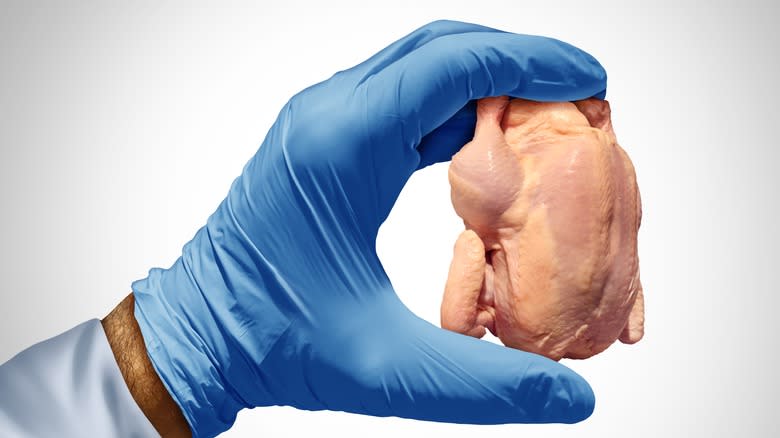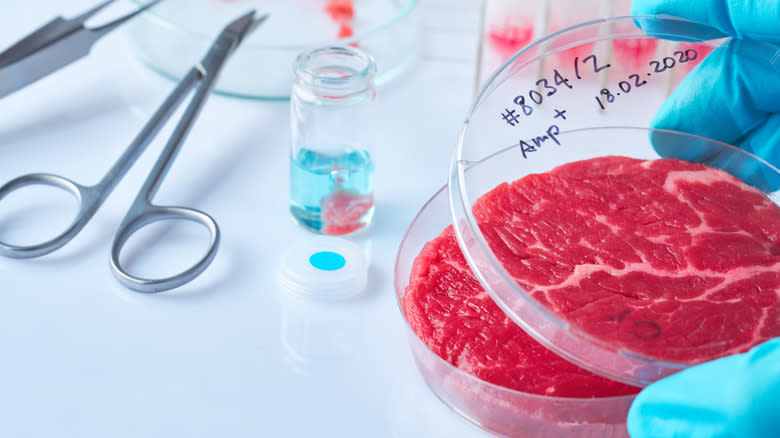Store In Singapore To Sell Chicken Made With Cultivated Meat And Plant Protein

Cell-cultivated meat, also known as lab-grown meat, has created quite a stir in America. Though not yet available in the U.S., at least two states, Florida and Alabama, have preemptively banned them from entering the marketplace. Other countries are apparently more welcoming, with Singapore now becoming the first to openly offer cultivated meat products for the retail public.
While Florida governor Ron DeSantis claimed protection for the state's beef industry, the type of cultivated meat being showcased in Singapore is chicken. The lab-grown chicken, created by California-based Good Meat, and sold in partnership with Huber's Butchery in Singapore, comprises only 3% of the overall product. But it's still considered a landmark breakthrough for the cell-cultivated meat market, having previously been sold for consumption in the U.S. only through dining establishments, which have now largely ceased the practice.
Even in Singapore, products from Good Meat, also known by the parent company name of Eat Just, have only appeared in the food-service space -- until now. In that country alone, home chefs can purchase the Good Meat 3 chicken product from Huber Butchery's retail outlet, for use in their own kitchens. In addition to the 3% lab-grown chicken content, it features plant proteins, perhaps easing lingering concerns while enabling lower price points for consumers.
Read more: 12 Different Ways To Cook Chicken
Lab-Grown Meat: Why So Serious?

All the controversy, which still dominates the cultivated-meat conversation in America, begs the question: What exactly is cell-cultivated meat, and why are there equally passionate advocates and detractors? The moniker of "lab-grown meat" explains at least some of the alarm. Lab-grown meat, aka cultivated meat, aka cell-cultivated meat, is exactly what it sounds like -- meat that originates in a laboratory rather than on a cattle or poultry farm. It's justifiably classified as meat because it's grown from actual animal cells. That, among other things, is what differentiates it from plant-based meats or the so-called plant protein products.
Advocates of cultivated meat point out dwindling worldwide food supplies and the extraordinary potential of this scientific approach. It can generate abundant amounts of food with potentially higher nutrition levels, requiring no animal slaughter while cutting down on environmental impacts and food-borne illnesses. Detractors, on the other hand, refer to it as "Frankenstein meat," fearing unknown factors of laboratory-created foods; surmising food-chain manipulation by large corporations; and desiring to protect current livestock farmers.
Regardless, the laboratory gates are opening wide in Singapore, and the U.S. FDA approved the manufacturing of cultivated meats in 2023. If science holds any sway with food consumers, it's notable that millions of dollars have been invested in cultivated meats by the likes of the the National Science Foundation and the USDA National Institute of Food and Agriculture. That's in addition to at least $3 billion from the private sector.
Read the original article on Tasting Table

